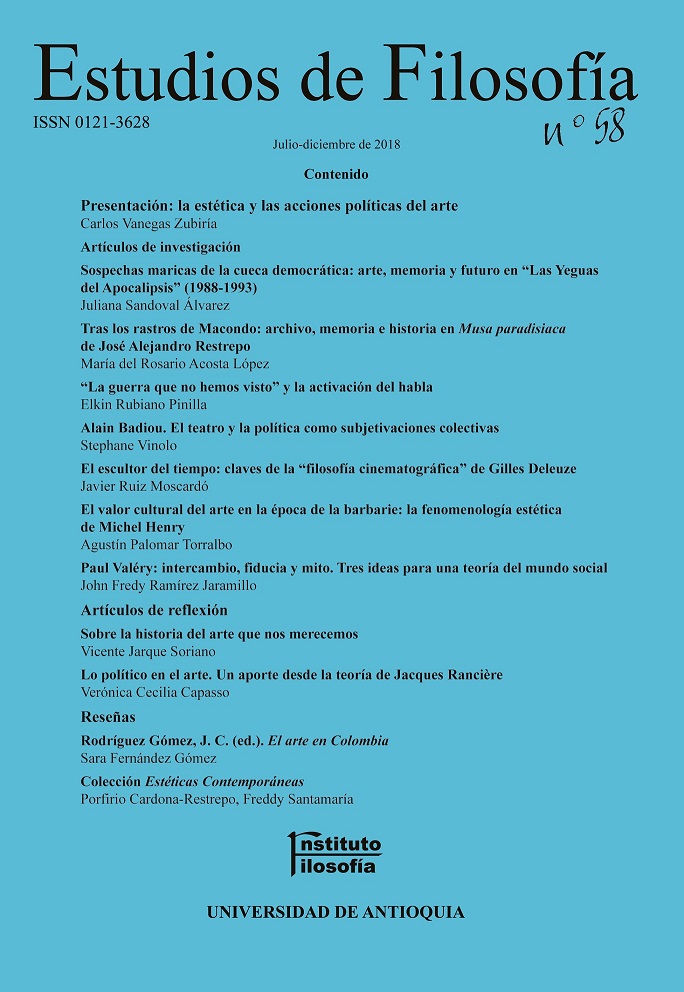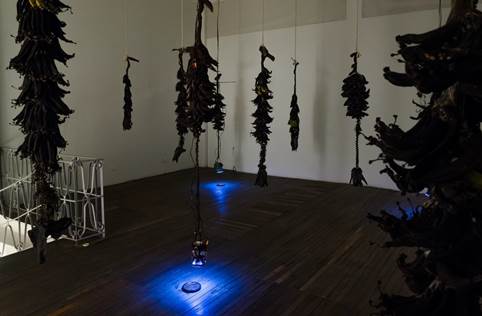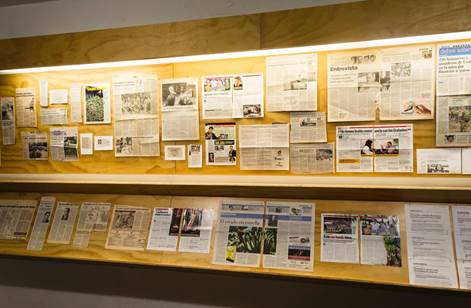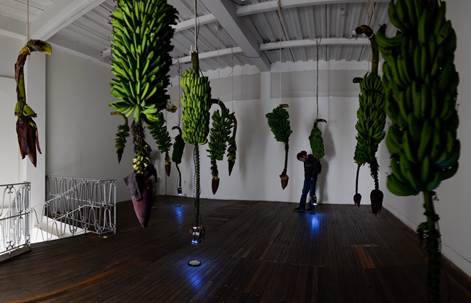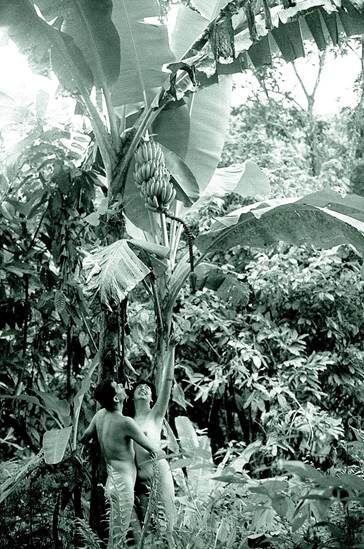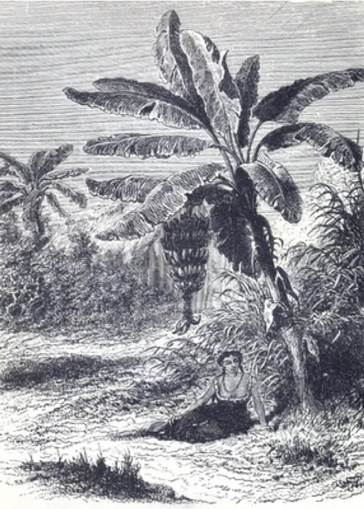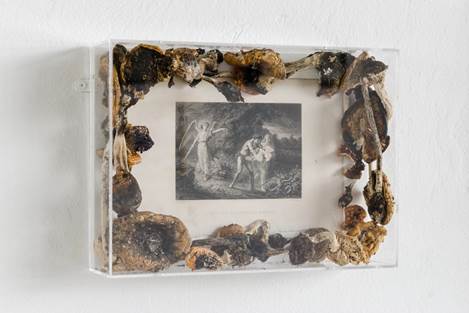Following Macondo’s traces: archive, memory, and history in José Alejandro Restrepo’s Musa paradisiaca
DOI:
https://doi.org/10.17533/udea.ef.n58a03Keywords:
José Alejandro Restrepo, Musa paradisiaca, unforgettable, myth, historyAbstract
This paper proposes a philosophical approach to José Alejandro Restrepo’s art installation, Musa paradisíaca. My reading intends to emphasize how each of the three stages of the most recent installation of the work in FLORA (2016) represents a destabilization of our conceptions of archive, memory, and history, respectively. By doing so, I argue, Musa gives birth to a series of grammars that allow to inscribe as unforgettable the kind of violence the work attempts to denounce. Thus, the work inaugurates a form of remembrance that is able to preserve both the kind of forgetfulness that pervades the history of violence in Colombia, together with the way in which this erasure constitutes, paradoxically, a stubborn form of survival. I am interested in exploring the political significance of this form of remembrance, and to inquire how Musa, in its multiple repetitions, from 1996 to the present, somehow performs the kind of displacements that it, in turn, is each time seeking to denounce. How, therefore, in its own inaugural forms of representation, the work is capable of insisting both on the irresolvable character of what it denounces, as well as on the di culties that surround the very act of rendering this denunciation audible.
Downloads
References
Acosta López, M. R. & Grupo Ley y Violencia. (Eds.). (2016). Memoria y Arte en Colombia: Resistencias al Olvido. Bogotá: Universidad de los Andes.
Acosta López, M. R. (2014). Arte y memoria de lo inolvidable: fragilidad y resistencia. En J. Domínguez et al. (Eds.), El arte y la fragilidad de la memoria (pp. 41–62). Medellín: Sílaba editores.
Acosta López, M. R. (2017). Hacia una gramática del silencio. Benjamin y Felman. En C. Gamboa & M. V. Uribe. (Eds.), Los silencios de la guerra (pp. 85–116). Bogotá: Siglo XXI editores.
Acosta López, M. R. (2018a [en prensa]). One Hundred Years of Forgotteness: Aesth–Ethics of Memory in Latin America. Philosophical Readings (número especial Philosophy in Colombia) 10(2).
Acosta López, M. R. (2018b). Gramáticas de la escucha: decolonizar la historia y la memoria. En M. Moraña. (Ed.), Sujeto, descolonización, transmodernidad (pp. 159-180). Debates filosóficos latinoamericanos, Frankfurt/Madrid: Iberoamericana/Vervuert.
Arango Z., C. (1981). Sobrevivientes de las bananeras. Bogotá: Editorial Colombia Nueva.
Arendt, H. (1967). The Origins of Totalitarianism. New York: Harcourt.
Benjamin, W. (1999). Ensayos escogidos. México: Coyoacán.
Benjamin, W. (2009). La dialéctica en suspenso. Fragmentos sobre la historia. Santiago de Chile: LOM.
Cortés Vargas, C. (1979). Los sucesos de las bananeras. Bogotá: Editorial Desarrollo.
Derrida, J. (1995). Archive Fever. Chicago: The University of Chicago Press.
Gaitán Ayala, J. E. (1997). 1928 La masacre de las Bananeras. Bogotá: Editorial Cometa De Papel.
García Márquez, G. (1984). Cien años de soledad. Bogotá: Editorial Oveja Negra.
García Márquez, G. (2018). La soledad de America Latina. Estocolmo: Nobel Media AB 2014. Recuperado de http://www.nobelprize.org/nobel_prizes/ literature/laureates/1982/marquez-lecture-sp.html
LeGrand, C. (1983). Campesinos y asalariados en la zona bananera de Santa Marta (1900–1935). Anuario Colombiano de Historia Social y de la Cultura, 11, 235–250.
Palacios, M. & Safford, F. (2002) Colombia: país fragmentado, sociedad dividida: su historia. Bogotá: Norma.
Restrepo, J. A. (1997). Musa paradisiaca. Bogotá: Banco de la República.
Restrepo, J. A. et al. (2016). Musa paradisiaca. Bogotá: Fundación FLORA ars+natura.
Uribe, A. (2010). ¿Pueden los hechos históricos resistirse a la mendacidad? Sobre la matanza de las bananeras. Revista Co–herencia , 7(13), 43–67.
White, J. (1978). Historia de una ignominia: la United Fruit Co. en Colombia. Bogotá: Editorial Presencia.
Published
How to Cite
Issue
Section
Categories
License
Copyright (c) 2018 María del Rosario Acosta López

This work is licensed under a Creative Commons Attribution-NonCommercial-ShareAlike 4.0 International License.
Authors who publish with this journal agree to the following terms:
1. The Author retains copyright in the Work, where the term "Work" shall include all digital objects that may result in subsequent electronic publication or distribution.
2. Upon acceptance of the Work, the author shall grant to the Publisher the right of first publication of the Work.
3. The Author shall grant to the Publisher a nonexclusive perpetual right and license to publish, archive, and make accessible the Work in whole or in part in all forms of media now or hereafter known under a Creative Commons Attribution-NoCommercia-ShareAlike (CC BY-NC-SA 4.0), or its equivalent, which, for the avoidance of doubt, allows others to copy, distribute, and transmit the Work under the following conditions: (a) Attribution: Other users must attribute the Work in the manner specified by the author as indicated on the journal Web site;(b) Noncommercial: Other users (including Publisher) may not use this Work for commercial purposes;
4. The Author is able to enter into separate, additional contractual arrangements for the nonexclusive distribution of the journal's published version of the Work (e.g., post it to an institutional repository or publish it in a book), as long as there is provided in the document an acknowledgement of its initial publication in this journal;
5. Authors are permitted, and Estudios de Filosofía promotes, to post online the preprint manuscript of the Work in institutional repositories or on their Websites prior to and during the submission process, as it can lead to productive exchanges, as well as earlier and greater citation of published work (see The Effect of Open Access). Any such posting made before acceptance and publication of the Work is expected be updated upon publication to include a reference to the Estudios de Filosofía's assigned URL to the Article and its final published version in Estudios de Filosofía.


